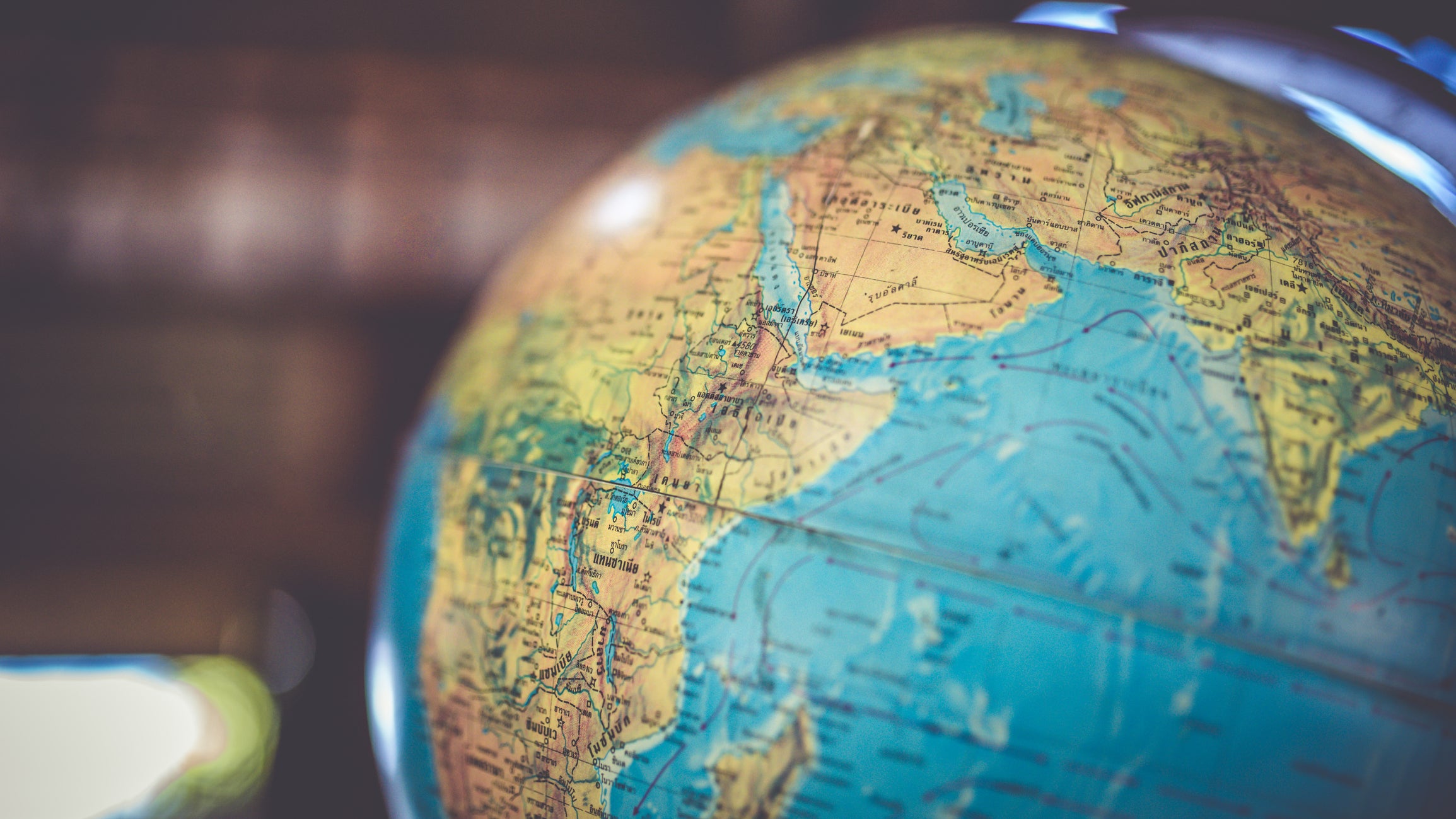Why we need a world without borders
So many of the divisions between countries are imaginary, decided by on agreement or conflict, writes Steve Taylor. We need to get rid of this nationalistic thinking for good

Your support helps us to tell the story
From reproductive rights to climate change to Big Tech, The Independent is on the ground when the story is developing. Whether it's investigating the financials of Elon Musk's pro-Trump PAC or producing our latest documentary, 'The A Word', which shines a light on the American women fighting for reproductive rights, we know how important it is to parse out the facts from the messaging.
At such a critical moment in US history, we need reporters on the ground. Your donation allows us to keep sending journalists to speak to both sides of the story.
The Independent is trusted by Americans across the entire political spectrum. And unlike many other quality news outlets, we choose not to lock Americans out of our reporting and analysis with paywalls. We believe quality journalism should be available to everyone, paid for by those who can afford it.
Your support makes all the difference.There are countless different species on the surface of this planet. One of these is the human race, which has over seven billion members. In one sense, there are no nations, just groups of humans inhabiting different areas of the planet. In some cases, there are natural borders formed by sea or mountains, but often borders between nations are simply abstractions, imaginary boundaries established by agreement or conflict.
Rusty Schweickart, a member of the 1969 Apollo 9 space mission, explained how when he looked at the Earth from space, he experienced a profound shift in perspective. Like most of us, he was brought up to think in terms of countries with borders and different nationalities, but seeing the world from this new angle changed his view. He felt “part of everyone and everything”. As he described it:
“You look down there and you can’t imagine how many borders and boundaries you cross, again and again and again, and you don’t even see them.”
Schweickart’s perspective reminds us that we belong to the Earth rather than to a nation, and to a species rather than a nationality. And although we might feel distinct and different, we all have a common source. Our species originally developed in eastern Africa around 200,000 years ago and migrated out into the rest of the world in a series of waves. If there was an ancestry website that could trace our lineage back to the very beginning, we would find that we all have the same great-great (followed by many other “greats”) grandparents.
How then do we explain nationalism? Why do humans separate themselves into groups and take on different national identities? Maybe different groups are helpful in terms of organisation, but that doesn’t explain why we feel different. Or why different nations compete and fight with one another.
The psychological theory of “terror management” offers one clue. This theory, which has been validated by many studies, shows that when people are made to feel insecure and anxious, they tend to become more concerned with nationalism, status and success. We seem to have an impulse to cling to labels of identity to defend ourselves against insecurity. There has, however, been criticism of the theory by some psychologists who believe it overlooks wider factors that contribute to human behaviour.
That said, the theory could go some way to help explain why nationalism grows in times of crisis and uncertainty. Poverty and economic instability often lead to increased nationalism and to ethnic conflict. An increased sense of insecurity brings a stronger need for conceptual labels to strengthen our sense of identity. We also feel the impulse to gain security through the feeling of belonging to a group with shared beliefs and conventions.
On this basis then it’s likely that people who feel the strongest sense of separation and the highest levels of insecurity and anxiety, are the most prone to nationalism, racism and to fundamentalist religion.
Beyond nationalism
One pertinent finding from my own research as a psychologist is that people who experience high levels of wellbeing (together with a strong sense of connection to others, or to the world in general) don’t tend to have a sense of group identity.
It’s impossible to override the fundamental interconnectedness of the human race. At some point, it always reasserts itself
I have studied many people who have undergone profound personal transformation following intense psychological turmoil, such as bereavement or a cancer diagnosis. I sometimes refer to these people as “shifters”, since they appear to shift up to a higher level of human development. They undergo a dramatic form of “post-traumatic growth”. Their lives become richer, more fulfilling and meaningful. They have a new sense of appreciation, a heightened awareness of their surroundings, a wider sense of perspective and more intimate and authentic relationships.
As I report in my book, The Leap, one of the common traits of “shifters” is that they no longer define themselves in terms of nationality, religion or ideology. They no longer feel they are American or British, or a Muslim or a Jew. They feel the same kinship with all human beings. If they have any sense of identity at all, it’s as global citizens, members of the human race and inhabitants of the planet Earth – beyond nationality or border. Shifters lose the need for group identity because they no longer feel separate and so have no sense of fragility and insecurity.
Why we need trans-nationalism
In my view, then, all nationalistic enterprises – such as “America First” or Brexit – are highly problematic, as they are based on anxiety and insecurity, so inevitably create discord and division. And since nationalism contravenes the essential reality of human nature and human origins, such enterprises always turn out to be temporary. It’s impossible to override the fundamental interconnectedness of the human race. At some point, it always reasserts itself.
Like the world itself, our most serious problems have no borders. Problems like the Covid-19 pandemic and climate change affect us collectively and so can only be solved collectively – from a trans-nationalist approach. Such issues can only be properly solved by viewing humans as one species, without borders or boundaries.
Ultimately, nationalism is a psychological aberration. We owe it our ancestors and to our descendants – and to the Earth itself – to move beyond it.
Steve Taylor is a senior lecturer in psychology at Leeds Beckett University. This article first appeared on The Conversation




Join our commenting forum
Join thought-provoking conversations, follow other Independent readers and see their replies
Comments